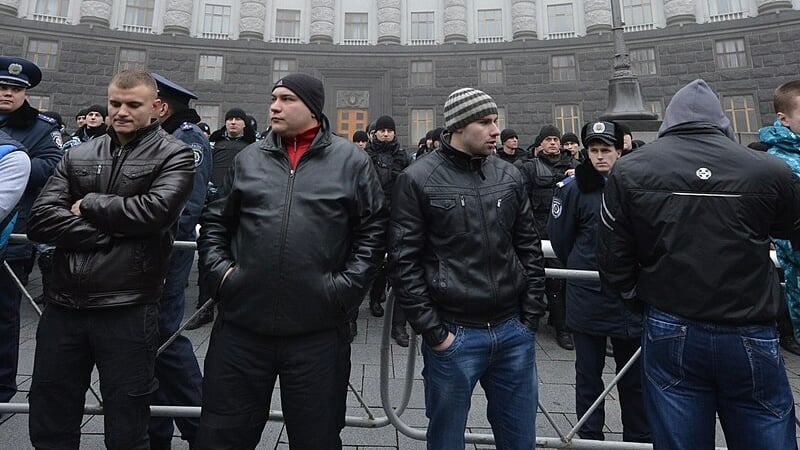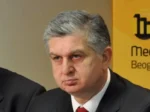Muscular men hired to intimidate protesters are not new — they first appeared in Ukraine as the notorious “Tituški.” Now, their tactics echo in Serbia under President Aleksandar Vučić’s regime.
What Are Tituški?
The term Tituški comes from Vadim Tituško, a 20-year-old Ukrainian martial artist who, in 2013, attacked journalists during pro-government demonstrations in Kyiv. Since then, the word has become synonymous with paid thugs hired by authorities to suppress opposition.
Their Role in Ukraine
During the Euromaidan protests (2013–2014), Tituški operated alongside police forces, attacking demonstrators, journalists, and political opponents.
- They were typically muscular men in tracksuits, often with criminal backgrounds.
- Many admitted receiving a daily payment of €25–€50.
- They camped near government buildings, protected by police.
Some Tituški used live ammunition. On February 18, 2014, at least one protester was killed near Ukraine’s Supreme Court. Others joined riot police in coordinated assaults with batons and metal pipes.
Why the Comparison to Serbia?
Observers in Serbia note striking similarities between Vučić’s enforcers and Ukraine’s Tituški. At the Kosjerić local elections, groups of muscular men reportedly intimidated voters and surrounded polling stations.
The resemblance raises questions about whether Vučić borrowed tactics from Viktor Yanukovych, Ukraine’s pro-Russian leader at the time.
European Concern
The term even reached EU politics. During the 2023 Belgrade protests, Viola von Cramon, European Parliament rapporteur for Kosovo, described violent groups as “Tituški, provocateurs – straight from the KGB playbook.”
Similar tactics have also been seen in Georgia, where pro-government “Tituški” attacked opposition offices during protests against the “foreign agents” law in 2023–2024.
The rise of Tituški-style enforcers highlights how authoritarian regimes across Eastern Europe employ paid muscle to silence dissent. While Ukraine eventually rejected Yanukovych and his methods, critics fear Serbia may be repeating the same script.







